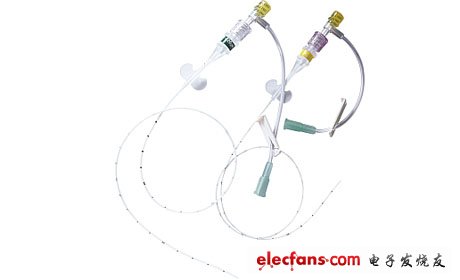An intravenous catheter is a thin-walled flexible plastic tube that is inserted into a vein and used for blood transfusion or drug administration.
According to a new study, chemical modification of the catheter with a substance called polySB can prevent the attachment of bacteria and at the same time reduce the risk of blood clot formation. Just like the condensation of water on cold glass in a humid weather, the polySB substance creates a chemical change in the catheter, and this change can fix the water molecules on the surface of the device. This situation inhibits the adhesion of proteins, platelets and bacteria to the surface of the device.

Roger Smith and colleagues tested the catheter treated with polySB in dogs and found that after 4 hours, there was a reduction in platelet aggregation on the catheter. The catheter modified with polySB was also exposed to bacteria and then implanted into the rabbit. In this model, the inflammation in rabbits is 50% less than that in rabbits using unmodified catheters.
These results suggest that polySB helps prevent common nosocomial bacterial infections and other complications related to intravenous catheters. Researchers are currently studying other uses of polySB, such as using it to prevent bacteria from attaching to orthopedic materials and contact lenses. PolySB may also be used for catheters.
Electric Ovens,Electric Convection Oven,Electric Toaster Oven,Built In Gas Electric Oven
xunda science&technology group co.ltd , https://www.gasstove.be